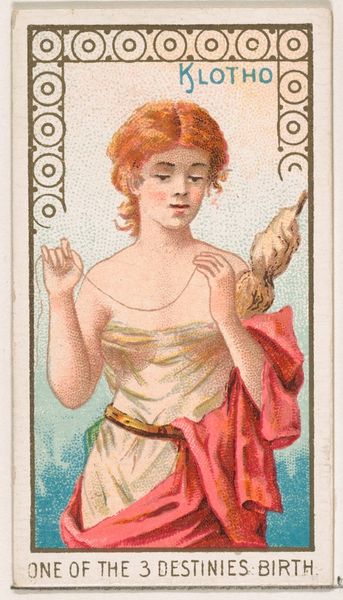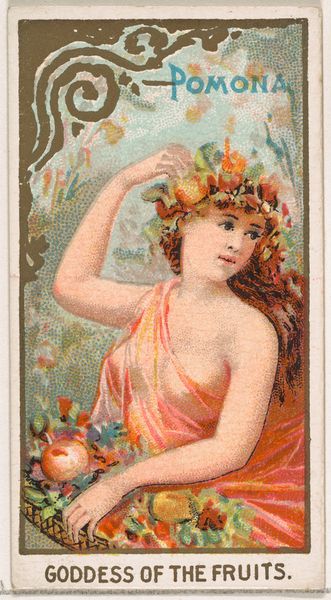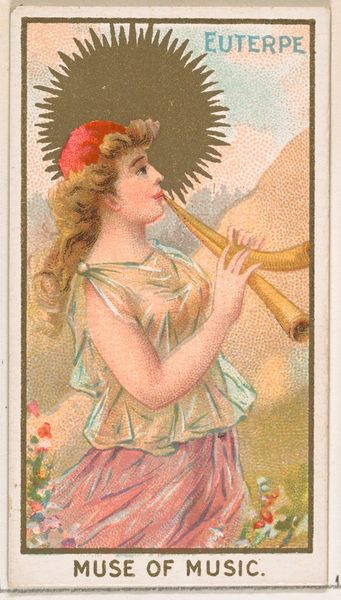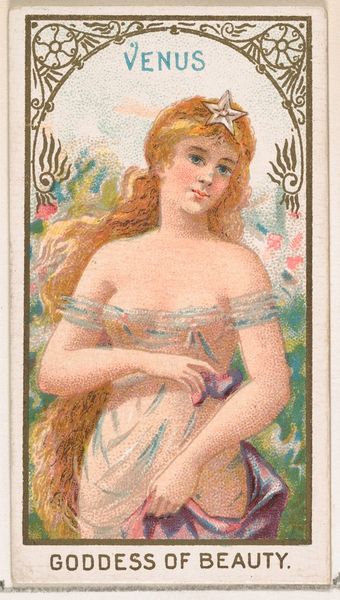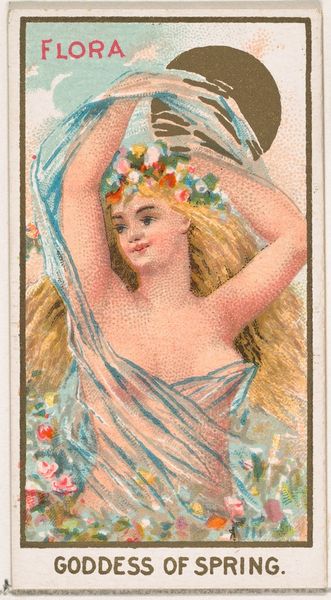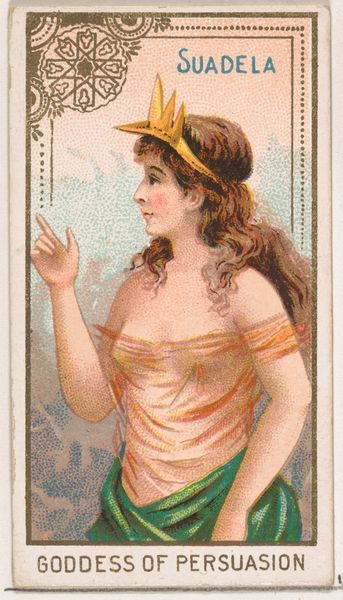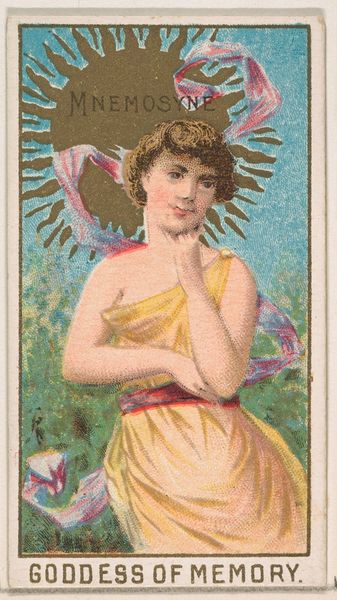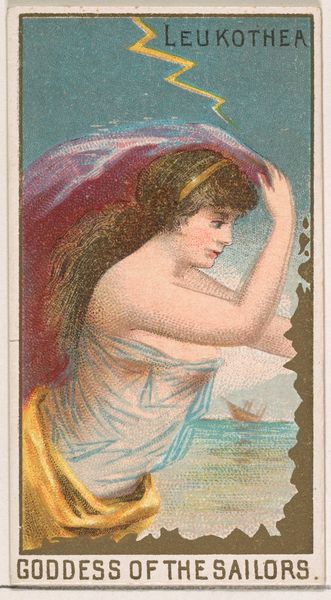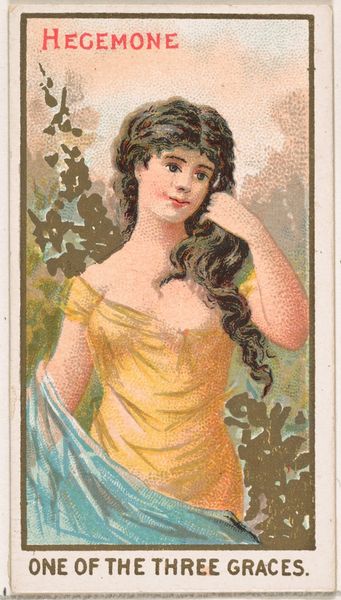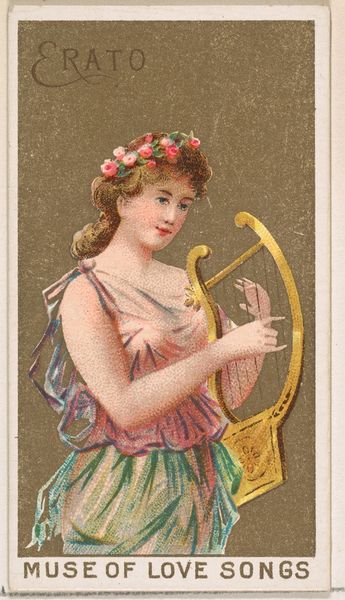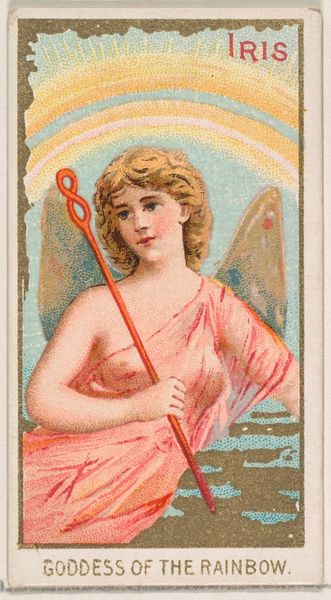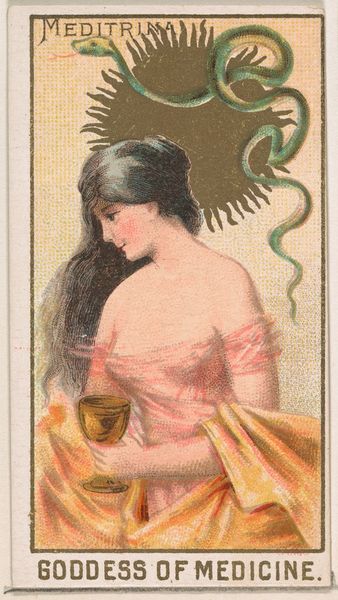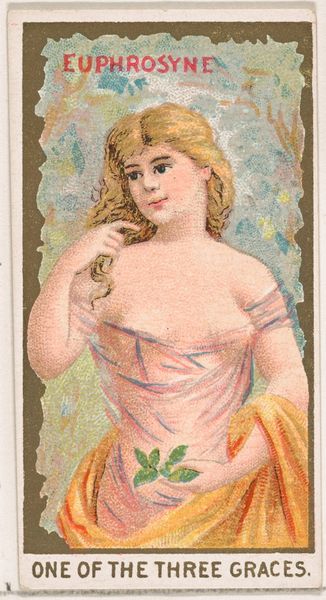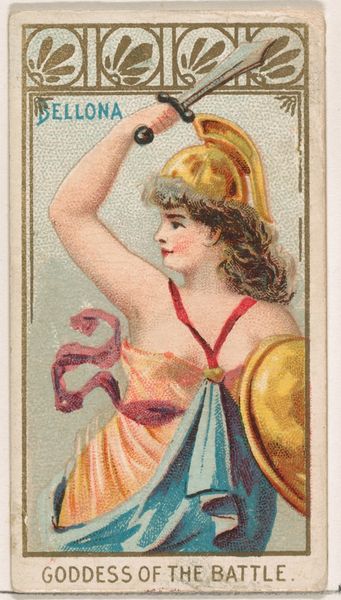
Astraea, Goddess of the Truth, from the Goddesses of the Greeks and Romans series (N188) issued by Wm. S. Kimball & Co. 1889
0:00
0:00
drawing, coloured-pencil, print
#
portrait
#
drawing
#
coloured-pencil
# print
#
neo-impressionism
#
coloured pencil
#
symbolism
#
portrait art
#
watercolor
Dimensions: Sheet: 2 3/4 × 1 1/2 in. (7 × 3.8 cm)
Copyright: Public Domain
This small chromolithograph of Astraea, Goddess of Truth, was distributed by the Wm. S. Kimball & Co., a prominent cigarette manufacturer in the late 19th century. These cards, popular in the United States, were inserted into cigarette packs as collectibles and advertising. The image presents Astraea, a Greek deity associated with justice and purity, against a backdrop of celestial symbols like the moon and stars. Consider the image's function: it’s not high art, but popular ephemera. Its purpose was to promote a commercial product, using classical imagery to evoke associations with beauty, virtue, and perhaps even a sense of timelessness. The distribution of such cards reflects the rise of consumer culture and mass media, as well as, the marketing strategies employed by businesses to create brand loyalty. It's a fascinating insight into the values and visual language of the time. To understand it better, explore archives of advertising ephemera, business histories of tobacco companies, and studies of consumer culture in 19th-century America. The meaning of art, even in its most commercial forms, is always contingent on its social and institutional context.
Comments
No comments
Be the first to comment and join the conversation on the ultimate creative platform.
